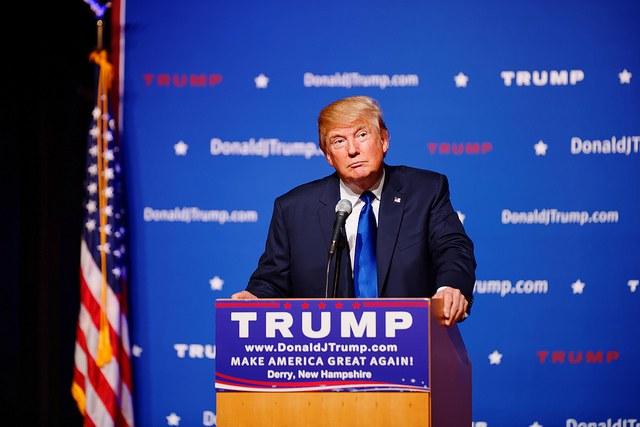
One tragedy of this year’s presidential election is that instead of a meaningful discussion of the issues affecting the U.S., the vast majority of voters will vote for their candidate based on fears over policy. One could argue this has long been true of American elections. But this year in particular has brought out the must volatile and infuriated reactions from voters. Hence lost in the buzz of Donald Trump’s ongoing comments was that last week his campaign announced the inclusion of childcare within the Trump economic plan.
Trump’s childcare plan appears to have been influenced by his daughter, Ivanka Trump. Ms. Trump’s management of her father’s campaign, as well as her demeanor, have won her kudos to the point that she was rumored to be in the running as The Donald’s vice-presidential pick. At last month’s Republican National Convention, she delivered a speech that, while largely personal, also brought up policy issues that traditionally are more aligned with the Democrats than the GOP. When crunching the numbers, however, Trump’s childcare plan appears as one that would benefit higher-income workers who already have the means to afford this service, instead of lower-earning workers who struggle to find decent daycare for their children.
Advocates for subsidized or fully-funded childcare insist that such options would groom a more talented workforce, enhance the country’s economic security, add to a child’s quality of life and develop confident future leaders. Critics of such plans usually point to the notion of individual responsibility and what they say is the exorbitant cost of these programs. Trump’s plan would allow these costs to be fully tax-deductible. Logically, such a deduction makes sense, as most employment expenses that a company does not reimburse can generally be written off when it comes time to file federal taxes.
But analysts say such a deduction would benefit the likes of Ivanka Trump and her peers far more than parents earning middle- and working-class incomes. As the Wall Street Journal pointed out, the costs of daycare in some states is meeting, and even exceeding, the price of college tuition. Edward J. McCaffery, a University of Southern California law professor, suggested on CNN that a couple with $30,000 in annual childcare expenses would save $10,000 on their federal taxes. Most working mothers, however, would receive nothing. Many lower-wage earners would not pay federal taxes under Trump’s economic plan. But these same workers would still struggle with sales and payroll taxes, while still having difficulty trying to find affordable childcare if they work full-time.
Trump’s opponent, Hillary Clinton, and the current presidential administration have offered proposals that do not mollify advocates for fully-funded childcare but would still have a positive financial impact on many Americans. Last year, the Obama administration suggested several childcare proposals, including tripling the current childcare tax credit and expanding childcare access to more families that have a child aged 4 or younger – clearly a non-starter considering the Republicans run both the House and Senate. Clinton announced a plan that would cap childcare costs to no more than a tenth of a family’s income.
The Ivanka Trump childcare plan has the veneer of a proposal that will help out working families. It also reflects much of Trump’s economic plan that has flummoxed many Republicans as it goes against a half-century of Republican orthodoxy. Unfortunately, any careful examination of his proposals has been overshadowed by the string of reckless comments that have dominated the newswires since the GOP convention in Cleveland. But when evaluating the Trump’s commitment to childcare, one has to consider the source.
Donald Trump has suggested that companies could provide childcare services for their employees at little cost. But he also appeared clueless when asked if his company offered any sort of childcare program at all. To that end, an Associated Press investigation revealed that the on-site childcare services Trump has touted during his campaign were not for his companies’ employees. In fact, programs such as “Trump Kids” and “Trumpeteers” were for guests and patrons of his hotels and golf clubs, not employees. One example of his questionable commitment to this issue came at a campaign rally last December, when his response to a question on childcare was a condescending, “It’s a big subject, darling.”
Ivanka Trump isn't putting her money when her mouth is either when it comes to offering benefits for new and current parents. Workers for the company that designs clothing for the Ivanka Trump brand told the Washington Post that there are no parental benefits reaching beyond the federally-mandated unpaid maternity leave. Childcare benefits of any kind are non-existent. So, while anyone in a demographic similar to Ivanka Trump could score financially from a Trump childcare plan, Vox writer Libby Nelson sums up how the plan works for everyone else: “Women whose work requires a fast-food uniform rather than an Ivanka Trump dress and heels, meanwhile, are mostly shut out.”
Image credit: Michael Vadon

Leon Kaye has written for 3p since 2010 and become executive editor in 2018. His previous work includes writing for the Guardian as well as other online and print publications. In addition, he's worked in sales executive roles within technology and financial research companies, as well as for a public relations firm, for which he consulted with one of the globe’s leading sustainability initiatives. Currently living in Central California, he’s traveled to 70-plus countries and has lived and worked in South Korea, the United Arab Emirates and Uruguay.
Leon’s an alum of Fresno State, the University of Maryland, Baltimore County and the University of Southern California's Marshall Business School. He enjoys traveling abroad as well as exploring California’s Central Coast and the Sierra Nevadas.














